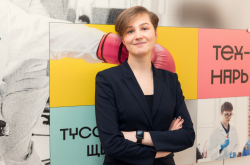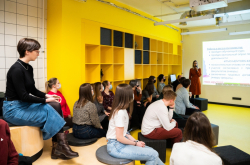ITMO University was among the first Russian universities who began promoting the idea of personalized learning in 2018, thus providing greater opportunities for students to choose what they want to study and how they want to study it depending on their personal and professional interests.
In early 2021, the university announced a competition for teaching staff that was meant to diversify educational programs offered to students. All in all, the contest received 72 applications. The expert board, which consisted of various university lecturers, reviewed all the proposals to select the best ones that would swell the ranks of the university-wide optional courses.
In the fall of the same year, ITMO’s First Vice Rector Daria Kozlova expressed a will to hold a similar contest among students. Having supported the idea, the expert board of university-wide courses headed by Maria Didkovskaia and supported by Anastasia Kryga, the head of ITMO’s Office of Implementation of Educational Programs, developed the requirements for a pilot competition and optional courses. The first contest was aimed at students from the ITMO.Mentors program exclusively.
“What’s important is that we made use of our students’ potential and showed other universities that not only lecturers can create courses. This is indeed a challenge to everyone involved in educational processes because young specialists have a lot to offer,” notes Yulia Vasilyeva, the head of ITMO’s Department of Program Design and Implementation.
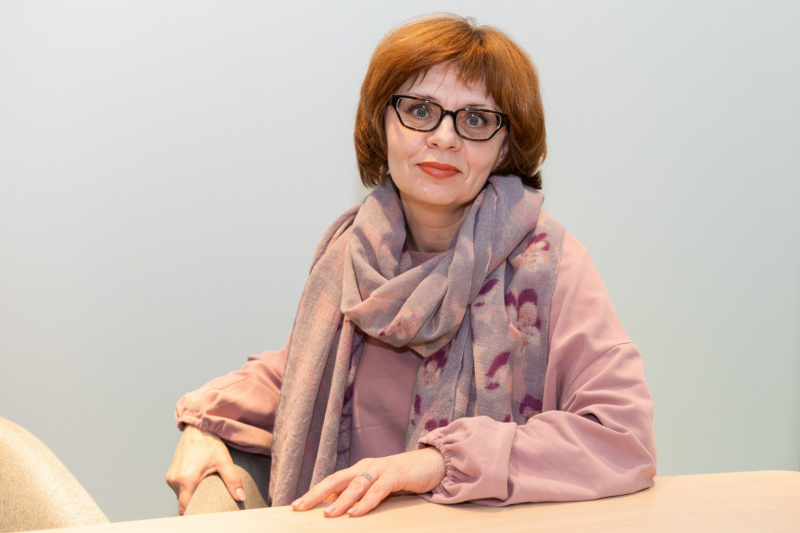
Yulia Vasilyeva. Photo by Dmitry Grigoryev / ITMO.NEWS
How courses were selected
The competition was held for Master’s or PhD students who were part of the ITMO.Mentors program and had no academic backlog. The participants were asked to devise a concept of their course and draw up a lesson plan, which would thoroughly describe how they were going to teach students and evaluate their performance. The expert board assessed the projects’ relevance and value, as well as methodical and scientific components. Yet the main criteria was that proposed courses had to be appealing to a wide range of students, no matter their year of studies or specialization.
“We expect that this project will help us achieve two main goals. First and foremost, we want to create conditions for our own modernization. This way, students who create and conduct their own courses will form a pool of our prospective lecturers. They will have no trouble pursuing their careers here because they already understand and share the university’s principles, values and mission, understand what they can and can’t do here, and know how to ace different formats. Our second goal is to help students who signed up for the courses develop their one-of-its-kind competencies. Whereas teachers offer classes that go strictly in line with the university’s scientific and methodological traditions, mentors are more free to create, and we can’t even imagine what they might come up with,” explains Yulia Vasilyeva.
Participants had ten days to submit their applications. The contest’s organizers received a total of 20 applications, 13 of which made it through the selection process. As noted by the experts, the courses that were proposed by students are equal to those of teachers in terms of delivery and content. And, what’s more important, they cover a wide range of fields: from computational physics, the fundamentals of automation of biosynthesis and biocatalysis processes, and risk management to singing and dancing.
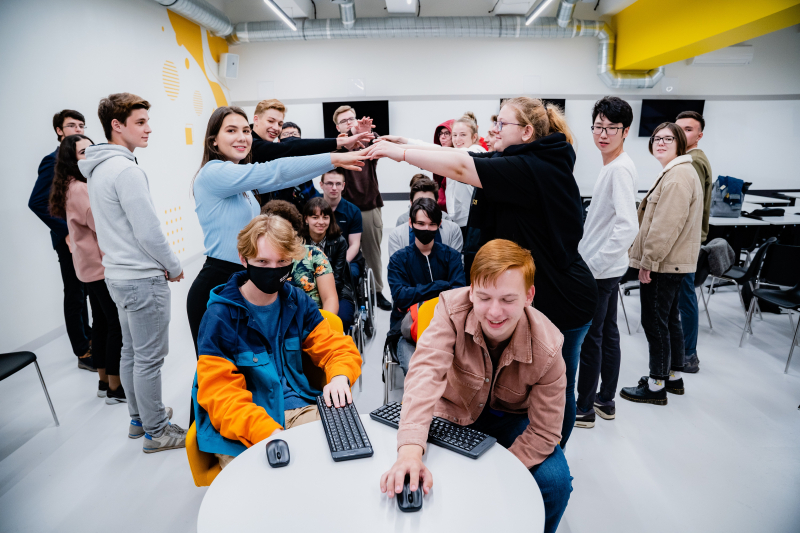
ITMO students. Photo by ITMO.NEWS
How courses were created
The organizers held special seminars and offered mentor support for participants in order to help them integrate into a new role. Most of the mentors were lecturers who taught soft skills at ITMO.
“It all started with a letter from Maria Tsyplyaeva, in which she asked me to mentor her with her course in regular management. I’m always there to help those who I trust. Having worked closely for all this time, we’ve become a real team and together launched our course in the fall semester. Other than that, I also said yes because I enjoy mentoring. Say, you’re a business mentor and you help your team at a social accelerator. What a pleasure it is to see how the people who trusted you take first place in this contest! It’s extremely important and valuable to develop something new, useful, and innovative together,” says Evgenia Shestakova, a soft skills lecturer at ITMO.
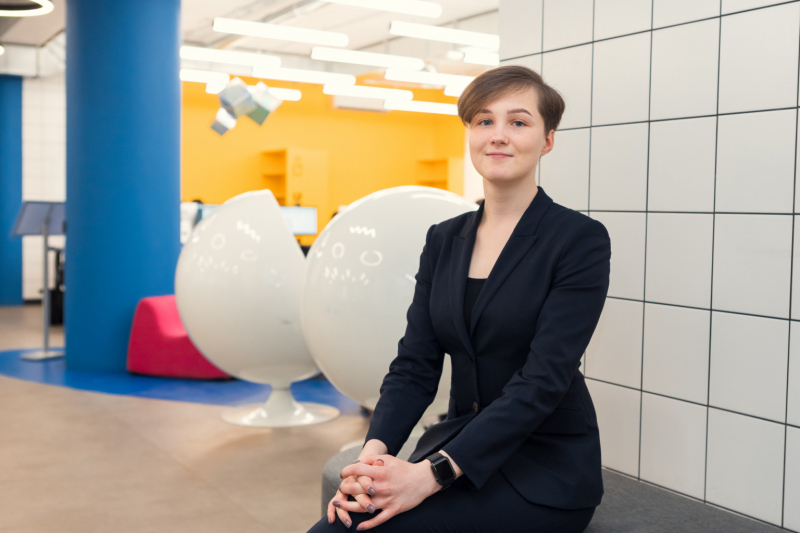
Maria Tsyplyaeva. Photo by Dmitry Grigoryev / ITMO.NEWS
From mid-January to late March, students assisted by their mentors created courses, practical tasks and tasks for independent work, as well as teaching formats and assessment systems. The first courses piloted on April 11.
“Mentors help students build a course program, define educational outcomes, plan work formats, and design lesson plans. I worked with Anna Pozhar from the School of Healthy Eating. First, we lined up the results we wanted to achieve with each class and then Anna designed plans for these classes, which I then reviewed and provided my feedback. Before she had her first class, we met and once again discussed the lesson plan. We work well together and Anna can not only discuss her classes with me but also share her feelings or worries about them,” says Antonina Fedorova, a soft skills lecturer at ITMO.
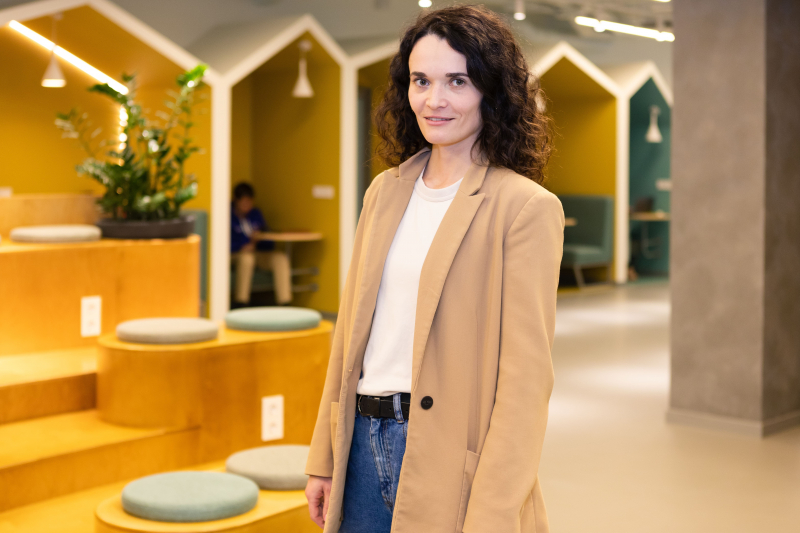
Antonina Fedorova. Photo by Dmitry Grigoryev / ITMO.NEWS
The mentors are confident that students’ optional courses are beneficial for everyone involved in the educational processes. They let students acquire novel and unique skills and what’s more, these courses can be listed in their diplomas if they want to and successfully complete the course. While it’s an excellent chance for participants to try their hand at teaching, the university’s lecturers can structure their experiences and share them with others. And, finally, these courses make it clear what today’s students are interested in, what they want to learn, and which formats they prefer.
The contest for all students
According to the organizers, the students’ courses turned out to be even more popular than the ones by lecturers: most disciplines were packed, three courses received 50% of applications, and only two – less than 50%. Such results may stem from the trend for shorter training formats.
In the future, the organizers plan to work on the format of other courses and reshape them into short-term ones. Thus, it will be easier for students to form their individual learning tracks, combine long- and short-term courses and various competencies by choosing one or several optional courses.
From now on, the contest welcomes all university students, not only mentors, and invites prospective participants to sign up before mid-April. Winners will bring their projects into life already next fall.
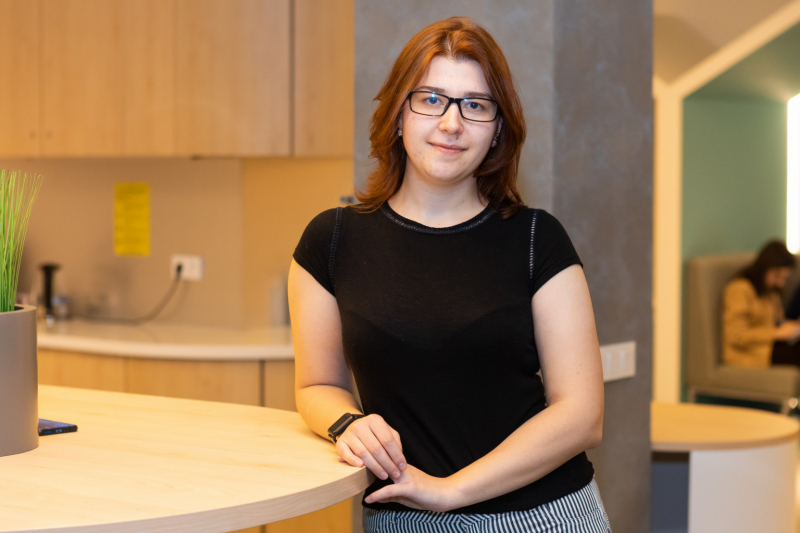
Anastasia Kryga. Photo by Dmitry Grigoryev / ITMO.NEWS
“Seeing how our mentors were actively involved in the process made it clear that our students are ready and willing to create their own courses. That’s why we decided to make our contest open to all students. When studying the new applications, we will have a closer look at each participant, their specialization, levels of studies, and background, and may even invite some of them to join the mentorship program,” concluses Anastasia Kryga, the head of ITMO’s Office of Implementation of Educational Programs.



